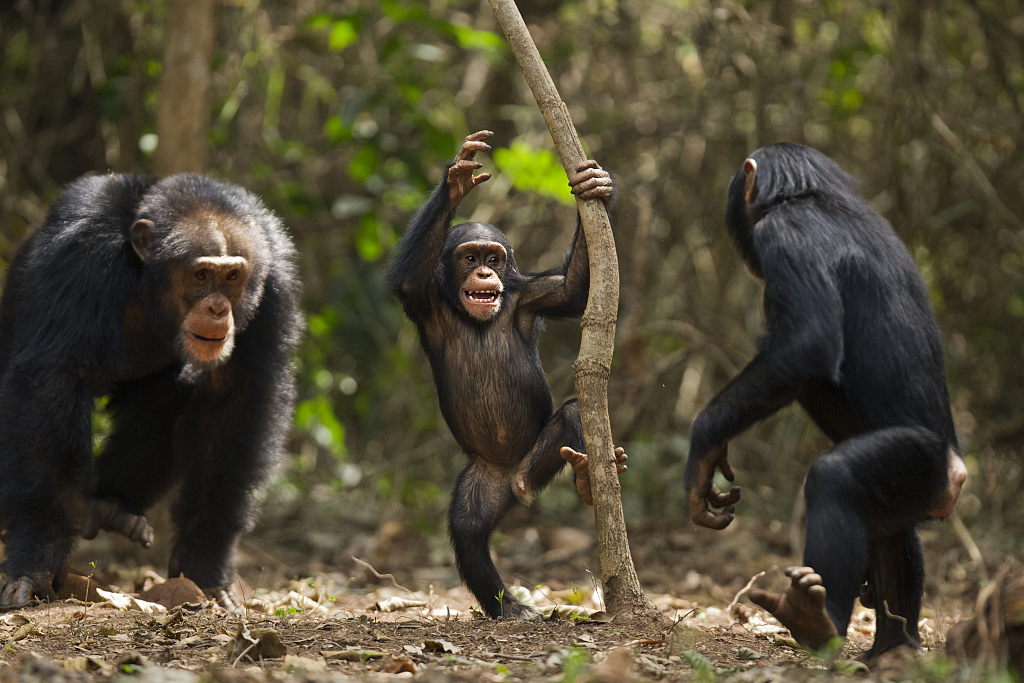Western chimpanzees are the only critically endangered chimpanzees in the world.
While most other chimpanzees live in dense jungles, the western chimps live in the savannas mixed with dry forests in western Africa, mainly in Côte d'Ivoire and Guinea.
These remarkable animals exhibit highly intelligent behaviors and traits that resemble human.
They make wooden spears to hunt other primates such as green monkeys and baboons. They use caves as homes, use stones or branches to crack nuts and share food with each other.
When it is extremely hot and dry in their surrounding environment, they also have been observed immersing themselves in water to cool down.
Western chimpanzees are one of the four subspecies of chimps spread across Africa. Populations of wild western chimpanzees are estimated between 35,000 and 55,000. These numbers may sound high, but they have declined in population by 80 percent over the past three decades.
Today the majority of remaining chimpanzees in Cote d'Ivoire are found in Tai National Park. In Liberia, the largest remaining rainforest population of western chimpanzees find their home, but are threatened by bushmeat hunting and rapidly developing mining and forestry activities. What is worse is that 70 percent of the remaining populations live outside of the protected areas.

Primates in jeopardy
As the most common primate on Earth, homo sapiens share the same order with other 512 species across 93 countries. Non-human primates are our closest relatives on this planet. They play a significant role in various types of ecosystems, from the mysterious tropical forests to the grand African savannas, their intelligence is fascinating and sheds light into studies of human society and behaviors.
However, many species of primates are on the brink of extinction. The series "Primates in jeopardy" is based on the list "World's 25 Most Endangered Primates (2018-2020)" co-published by IUCN SSC Primate Specialist Group (PSG), International Primatological Society (IPS), Global Wildlife Conservation (GWC) and Bristol Zoological Society (BZS).
This is the tenth iteration of a biennial listing of a consensus of the 25 primate species considered to be among the most endangered worldwide and the most in need of conservation measures.
(All photos via VCG. Cover image designed by CGTN's Chen Yuyang.)
(If you want to contribute and have specific expertise, please contact us at nature@cgtn.com)